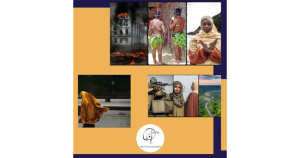Brussels-Rome-New York, 2 December 2014
On Monday 1 December 2014, the ICC Appeals Chamber by majority upheld the conviction and sentence of Thomas Lubanga for the war crime of enlisting and conscripting children under the age of 15 and using them in the armed conflict in the Ituri region between 2002 and 2003. Mr Lubanga had been sentenced to 14 years on 10 July 2012, following a 6-year process that began with his transfer to The Hague in 2006. The decision marks the first completion of a case before the ICC from initial proceedings through to final decision, from which there is no further appeal.
Statement by Alison Smith, NPWJ’s International Criminal Justice Director:
“No Peace Without Justice (NPWJ) and the Nonviolent Radical Party, Transnational and Transparty (NRPTT) welcome the ICC Appeals Chamber decision as an important step for the recognition of children’s human rights. It is the first time that the war crime of conscripting, enlisting or using of child soldiers to participate actively in hostilities has come to trial at the ICC – and the first case to reach completion. This is a time for celebration and a time for reflection.
“This is an important moment for the victims and for children’s rights in general. For the victims, it means that responsibility for the crimes committed against them and their loved ones is clear. All that remains is for the Appeals Chamber to rule on reparations, which we hope that will happen without delay, as it is an important step in closure not only for the victims, but for everyone affected by the case.
“The decision is an important affirmation for children that violations against them will be taken seriously. It underscores that they are rights-holders, which is fitting given that we have recently celebrated the 25th anniversary of the Convention on the Rights of the Child (CRC). We look forward to the Office of the Prosecutor using the lessons learned during the Lubanga investigation and trial to shape both its policy on how to involve children in proceedings, whether as witnesses or as other stakeholders, and more generally their investigation priorities. In particular, we are gratified that the so-called ‘focused investigations’ approach has been discredited and discarded, and that the OTP recognises that unless they commit the necessary investigative resources through a sustained in-country presence, there cannot be adequate trials. We look forward to field presence being strengthened in the coming years, supported also by a stronger focus in the Registry’s ReVision project on the ICC as a field-based institution.
“We hope that this decision, alongside the milestone in the life of the CRC, spurs strong, decisive action for the protection of children and their rights, particularly during armed conflict and political upheaval. We urge all States that have not done so to ratify the Second Optional Protocol to the CRC raising the minimum age for conscription, enlistment or use to 18 and include this crime within their domestic legislation. We also urge ICC States Parties to consider amending the Rome Statute to reflect this definition at the next possible opportunity. Finally, we encourage both States and international and national accountability mechanisms to give real effect to a child’s right to participate in decisions affecting their lives. That would be a lasting legacy of the long process that has brought us to this moment and a demonstration of the commitment of everyone to children now and long into the future.”
For further information, contact Alison Smith on asmith@npwj.org or +32-2-548 39 12 or Nicola Giovannini on ngiovannini@npwj.org or +32-2-548-3915.




